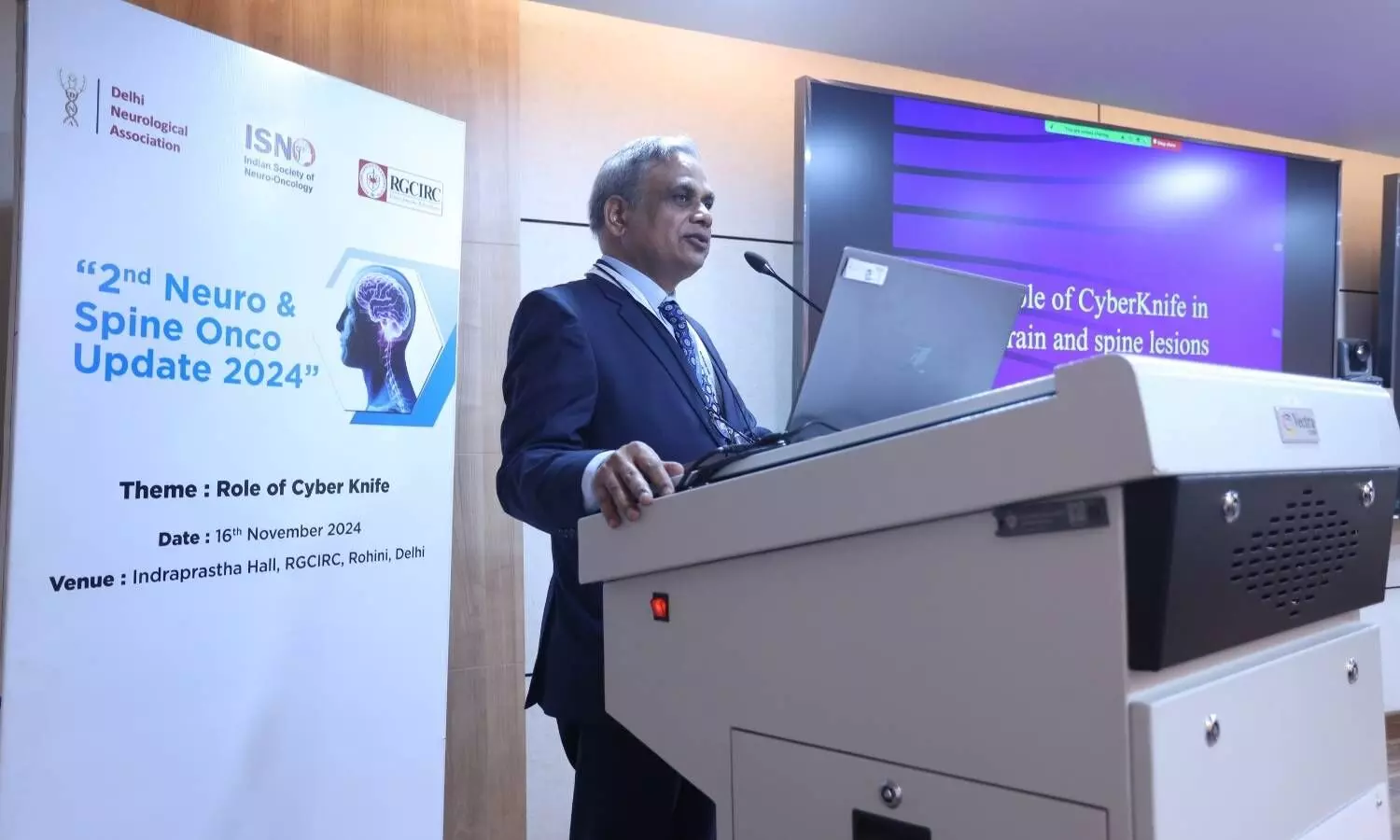Advancements in Brain and Spine Tumor Care: Insights from RGCIRC Neuro & Spine Onco Conference

New Delhi: The Rajiv Gandhi Cancer Institute and Research Centre (RGCIRC) successfully organized the second edition of the Neuro & Spine Onco Conference, bringing together 200 neuro-oncology experts from across India. The conference served as a platform to discuss the latest advancements in managing brain and spine tumors, with a focus on enhancing technical feasibility, surgical safety, and treatment efficacy.
Dr (Prof.) Ishwar Chandra Premsagar, Chief of Neuro & Spine Oncology Services at RGCIRC and the organizing chairman, emphasized the importance of awareness for brain and spine tumors. "The conference aimed to raise awareness about brain and spine tumors, which can either originate from the brain tissue or metastasize from other body cancers. These vital organs are responsible for movement, speech, vision, and hearing. Tumors can lead to lifelong disabilities if not managed properly. Due to lack of screening tests for brain tumors, it’s important to recognize warning signs such as persistent headaches or seizures," he said.
A central highlight of the event was the state-of-the-art CyberKnife technology, introduced at RGCIRC in 2023. The CyberKnife system is a cutting-edge radiation therapy tool that offers precise, non-invasive treatment options.
Explaining its capabilities, Dr. Premsagar stated, "CyberKnife delivers very focused radiation, unlike regular radiation, which is less precise. It can target the tumor with surgical precision, 'burning' it without harming the surrounding tissue."
The conference featured specialized sessions on pediatric tumors, spine tumors, radiation treatment, and the roles of pathology and radiation in tumor management. Participants included neuro-oncology surgeons, medical and radiation oncologists, neuropathologists, neuro-anesthetists, neuro-radiologists, and neuro-psychologists, reflecting a comprehensive, multidisciplinary approach to patient care.
Experts at the conference explored innovative surgical procedures, advancements in radiation therapy, and new research findings, reinforcing the importance of collaboration in neuro-oncology.
The event highlighted how fostering knowledge sharing equips healthcare professionals with the tools and insights necessary to improve outcomes and the quality of care for patients facing brain and spine cancers.
The conference underscored the need for continuous innovation in treatment and the pivotal role of multidisciplinary approaches in managing cancers of the central nervous system.


